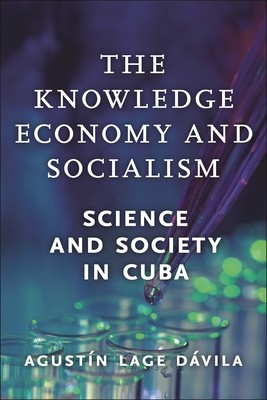
- We will send in 10–14 business days.
- Author: AgustÃÂn Lage Dávila
- Publisher: Monthly Review Press
- ISBN-10: 1685900429
- ISBN-13: 9781685900427
- Format: 13.7 x 20.8 x 2.3 cm, minkšti viršeliai
- Language: English
- SAVE -10% with code: EXTRA
Reviews
Description
Examines Cuba's approach to scientific research, and distinguishes it from that of capitalist societies
"Cuba's future must, by necessity, be a future of scientists," Fidel Castro proclaimed in 1960. As AgustÃÂn Lage Dávila shows in this pathbreaking book, Cuba has in fact become a global leader in both the generation and application of scientific knowledge--as demonstrated by its ubiquitous production of socially useful products, from vaccines and medicines, to organic food. Speaking from his position as a noted Cuban immunologist, Dr. Lage shows how Cuba achieved such prominence, positing that the training of its scientists, their scientific practices, and their relationships with the Cuban people are intimately connected to the socialist culture that derived from the Cuban Revolution. Lage offers clearly written and easily understood answers to questions critical to the very survival of humanity. Why is culture critical to science? What distinguishes Cuba's socialist culture from that of capitalist societies? What are the social responsibilities of scientists? How has Cuba made such incredible scientific advances in the face of the brutal and illegal U.S. blockade? How can a country like Cuba earn needed foreign exchange through the sale of its knowledge-intensive products to countries in the Global North while maintaining its ethical, socialist ideals? Lage's interrogation of these questions will be of interest to scientists and economic planners around the world, to all those struggling for a better world-and, no doubt, even to those corporations competing with Cuba in global markets.EXTRA 10 % discount with code: EXTRA
The promotion ends in 24d.00:23:03
The discount code is valid when purchasing from 10 €. Discounts do not stack.
- Author: AgustÃÂn Lage Dávila
- Publisher: Monthly Review Press
- ISBN-10: 1685900429
- ISBN-13: 9781685900427
- Format: 13.7 x 20.8 x 2.3 cm, minkšti viršeliai
- Language: English English
Examines Cuba's approach to scientific research, and distinguishes it from that of capitalist societies
"Cuba's future must, by necessity, be a future of scientists," Fidel Castro proclaimed in 1960. As AgustÃÂn Lage Dávila shows in this pathbreaking book, Cuba has in fact become a global leader in both the generation and application of scientific knowledge--as demonstrated by its ubiquitous production of socially useful products, from vaccines and medicines, to organic food. Speaking from his position as a noted Cuban immunologist, Dr. Lage shows how Cuba achieved such prominence, positing that the training of its scientists, their scientific practices, and their relationships with the Cuban people are intimately connected to the socialist culture that derived from the Cuban Revolution. Lage offers clearly written and easily understood answers to questions critical to the very survival of humanity. Why is culture critical to science? What distinguishes Cuba's socialist culture from that of capitalist societies? What are the social responsibilities of scientists? How has Cuba made such incredible scientific advances in the face of the brutal and illegal U.S. blockade? How can a country like Cuba earn needed foreign exchange through the sale of its knowledge-intensive products to countries in the Global North while maintaining its ethical, socialist ideals? Lage's interrogation of these questions will be of interest to scientists and economic planners around the world, to all those struggling for a better world-and, no doubt, even to those corporations competing with Cuba in global markets.

Reviews